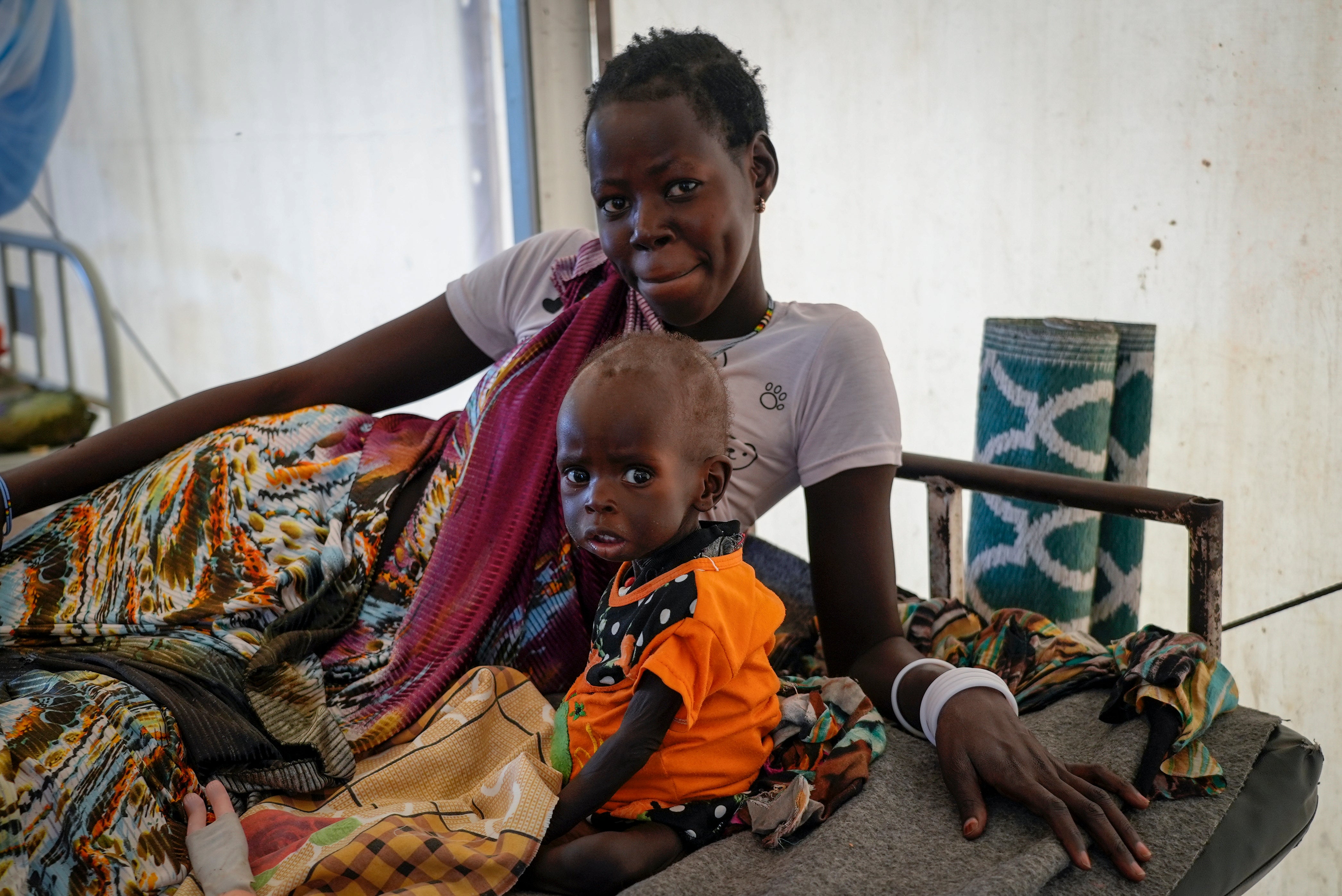New report: Two-thirds of South Sudan badly food insecure
A new report says nearly 8 million people in South Sudan, or about two-thirds of the population, will face acute food insecurity during the next lean season as climate shocks and conflict deepen the already vulnerable situation for many

Your support helps us to tell the story
From reproductive rights to climate change to Big Tech, The Independent is on the ground when the story is developing. Whether it's investigating the financials of Elon Musk's pro-Trump PAC or producing our latest documentary, 'The A Word', which shines a light on the American women fighting for reproductive rights, we know how important it is to parse out the facts from the messaging.
At such a critical moment in US history, we need reporters on the ground. Your donation allows us to keep sending journalists to speak to both sides of the story.
The Independent is trusted by Americans across the entire political spectrum. And unlike many other quality news outlets, we choose not to lock Americans out of our reporting and analysis with paywalls. We believe quality journalism should be available to everyone, paid for by those who can afford it.
Your support makes all the difference.A new report says nearly 8 million people in South Sudan, or about two-thirds of the population, will face acute food insecurity during the next lean season as climate shocks and conflict deepen the already vulnerable situation for many.
The report released by United Nations agencies says the proportion of people at such risk in South Sudan is at the highest ever in the country recovering from a civil war that ended in 2018.
The report says 1.4 million children likely will be malnourished during the lean season from April to July 2023.
The warning about South Sudan, whose climate shocks include widespread flooding, comes ahead of the U.N. climate summit in Egypt next week. The U.N. humanitarian agency late last month said over 1 million people were affected by torrential rain and flooding in 36 counties across South Sudan.
The report also blames rising food prices and a drop in funding for humanitarian programs for the crisis.
South Sudan’s agriculture minister, Josephine Lagu, said that “humanitarian assistance is needed to save lives and prevent the total collapse of livelihoods in the country.”
The acting country director for the World Food Program, Makena Walker, said they have been in “famine prevention mode” and called South Sudan on the front lines of the climate crisis.